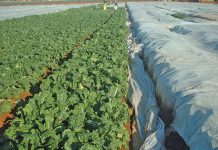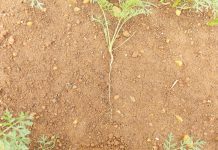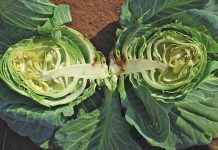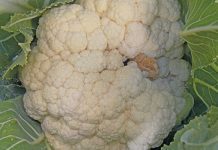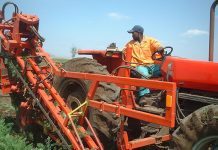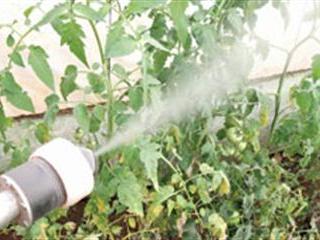
This is due to greater consumer awareness of the dangers associated with the consumption of toxins. In turn, markets and supermarkets are doing more and more random tests on incoming produce to make sure the ever-tightening restrictions are being adhered to. And they’re using this as part of their marketing strategies, endeavouring to show they have higher standards than their competitors.
GlobalGAP requirements are also playing a greater role in food production.This trend has not gone unnoticed by those who supply crop protection remedies and an array of safe products is now available to vegetable producers. Many of these products incorporate living organisms and plant extracts. They’re not only safer for the consumer, but also much safer for those who apply the products.
In this regard, when it comes to crops growing in tunnels, I’m extremely fussy about products which are applied with a mist blower. I’m not comfortable using standard respiratory protection equipment when all the air in the confined space of a tunnel is charged with toxic chemicals. Thus, a good side to this trend is that more research is now going into producing safer, non-toxic products.
Another plus side is that the trend often leads to farmers incorporating natural enemies of plant pests into their control systems. The older, often highly toxic products would kill off these natural biological control agents. In turn, this would make farmers even more dependent on these toxic products.
The way forward
The process of combining selected products and natural enemies of crop pests is known as integrated pest management (IPM) and is definitely the way forward. Having said this, it’s by no means a new concept. The increasing availability of non-toxic pesticides and biological control agents simply offers greater opportunities to introduce such programmes.
“Hang on,” you might say, “all it takes is for one pest to be a threat to a crop that cannot be controlled by natural means, but only by a toxic product, to upset the whole apple cart.” However, with more and more safer or ‘softer’ products coming onto the market, the likelihood of this happening is decreasing.
The real problem
In my opinion, the real problem is that too many farmers are still dependent on traditional pest control procedures and aren’t aware of the newer options. This is not necessarily their fault. After all, who will enlighten them? A salesperson has a product to hawk. If they say a farmer should rather use natural means they’ll very soon be looking for another job. Many of a crop pest’s natural enemies are found in the vicinity and just need the correct environment to be able to ply their trade, as it were.
Furthermore, they’re free (meaning companies cannot usually make money from this process), giving us another reason why so little information about IPM reaches farmers, I reckon. On the other hand, natural enemies of crop pests may be in the area, but not in enough numbers to initially take control. This means there exists in South Africa an opportunity for producers of such natural enemies.
Consider the case of Kenya. It exports a lot of fresh produce to Europe. Tighter pesticide legislation there saw farmers in Kenya forced to adopt IPM some time ago. As a result, Kenya is far ahead of us in this regard and its farmers buy biological control agents from companies established to meet this demand.
The rewards
Some South African farmers have gone to Kenya to gather information on effective IPM and have been able to successfully implement these practices here. And that’s just it – we’ll require a much greater understanding of both the pests which we need to control, as well as the insects and other organisms needed to control them. We’ll also need to closely monitor the progress of pest and predator.
Which is a good thing, as it will force us to have more ‘contact’ with our crops and do less ‘bakkie farming’! There’s no doubt about it, though. The rewards of IPM are far-reaching. One farmer who’s gone this route informs me that he now saves R1 million annually as a result.
Contact Bill Kerr at [email protected]. Please state ‘Vegetable production’ in the subject line of your email.

